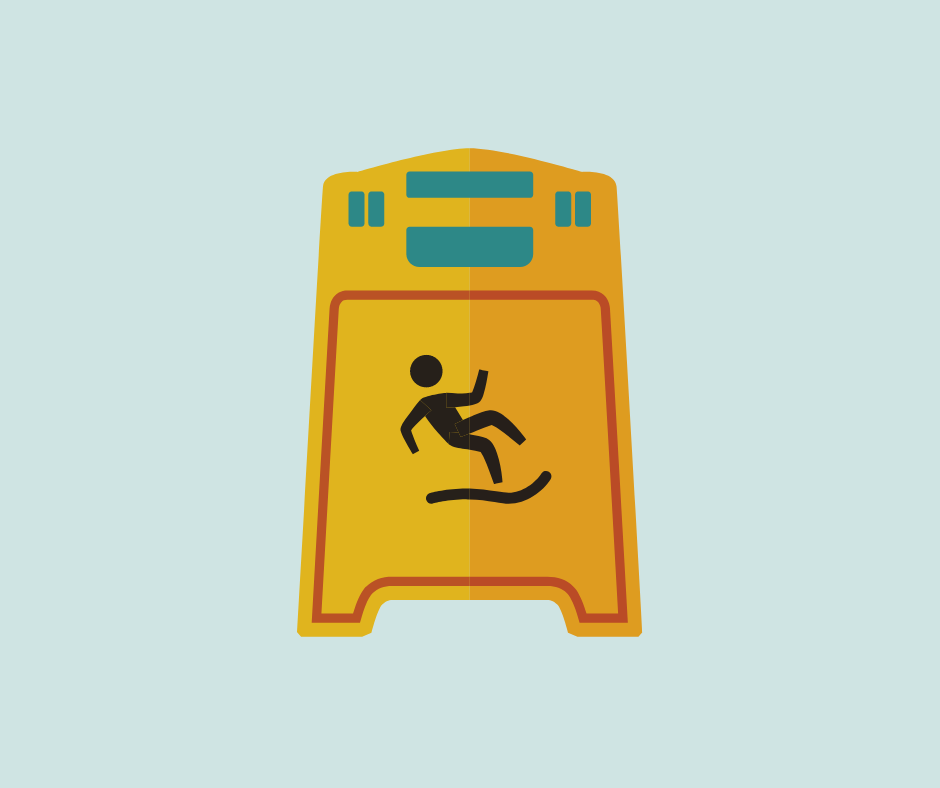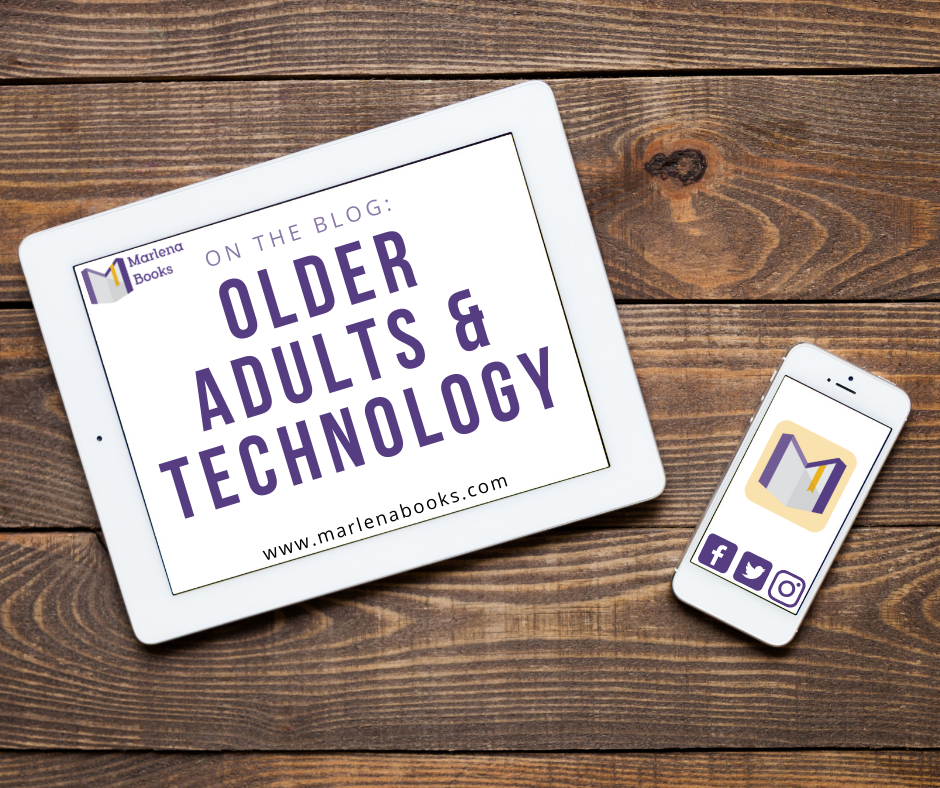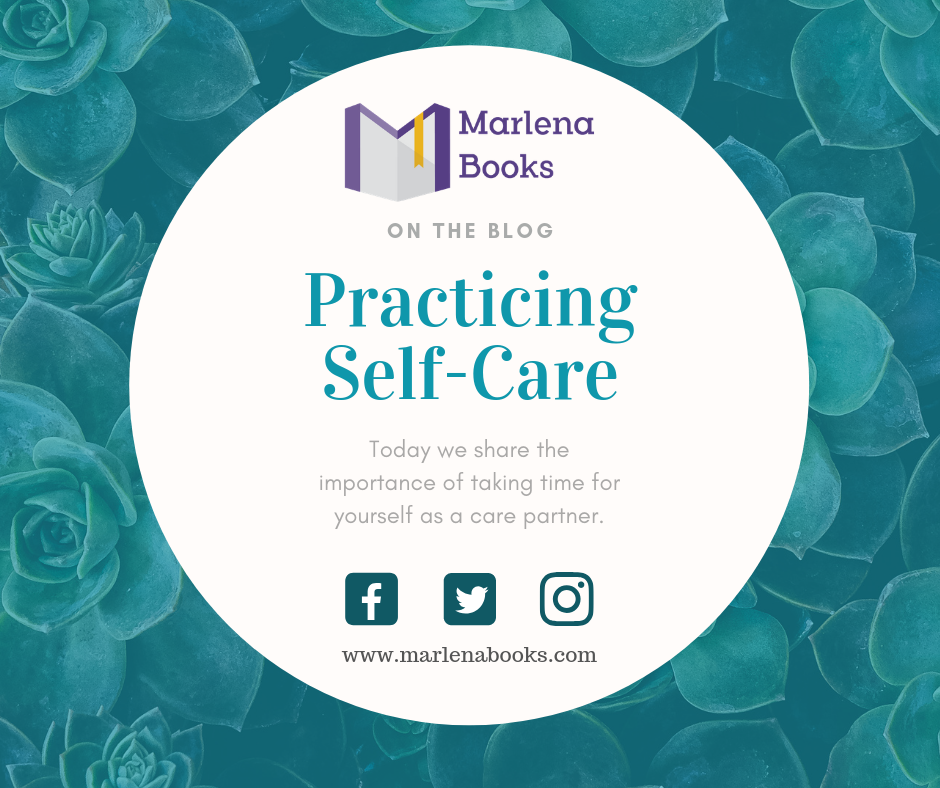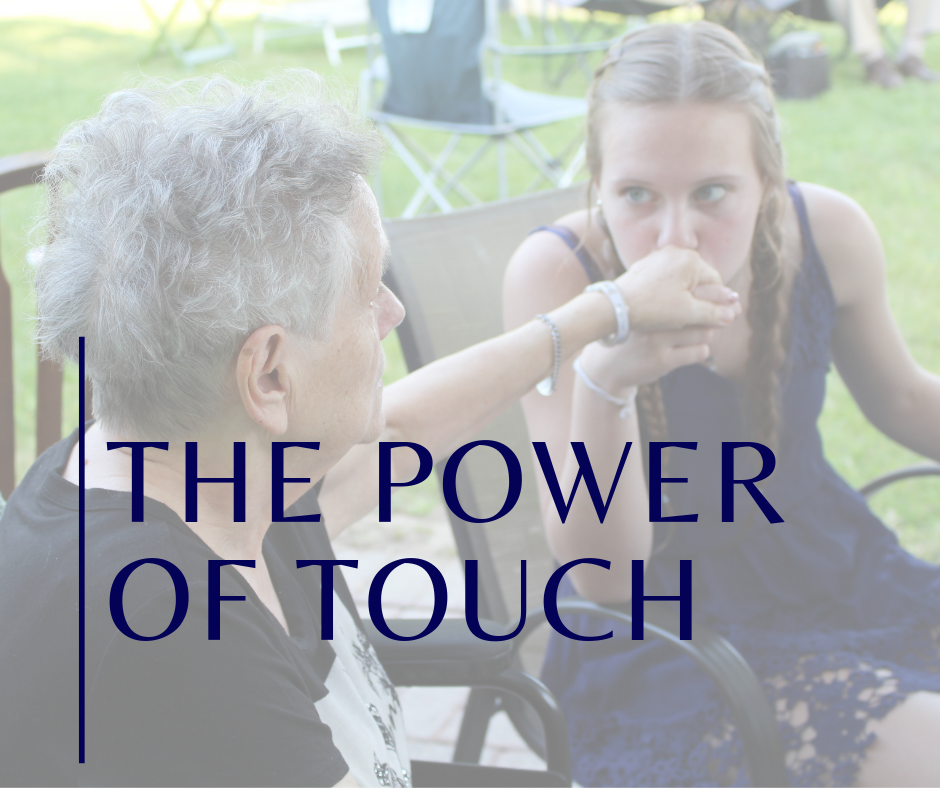News — wellbeing

Preparing for Hospice Care
Are you starting to notice your loved ones' health is declining? This might mean it's time to think about hospice care. Today we share some strategies to prepare for this next transition.
Tips for Preventing Falls
Approximately 20-30% of Canadians over the age of 65 fall each year. Many of these falls can be prevented by taking simple steps to ensure safety. We share tips for preventing falls.
Reduce Obstacles around your Home
The most preventable method to reduce the risk of falling is to clean up obstacles around your home that may increase the risk of tripping or slipping. For example, tidy up any clutter around your house and keep it away from your walking paths. Remove any rugs around your home that might be easily tripped over or secure them to the floor. A fun way to help declutter is to analyze your home with family members or friends and create a 'scavenger hunt' activity to identify any areas of concern.

Install Grab Bars or use Assistive Devices where Needed
Grab bars and assistive devices should be used for prevention, meaning it is a good idea to install them prior to any accidents occurring. For example, grab bars are easy to install near toilets, sinks, showers and bathtubs, or in your bedroom. They are a cost effective item that can be that extra support when you might need it most. If you begin noticing concerns moving throughout your home, think about using an assistive device, such as a cane or walker. Speak to your doctor about what you are experiencing and what they recommend for you. There are many resources available to help cover the costs of assistive devices, inquire about these options prior to purchasing a brand new item.
Practice Balance Exercises
If you are willing and able, balance exercises are a great way to prevent falls and to maintain your physical health. Make an appointment with a physical therapist to learn some new balance exercises that you can implement throughout your day. These simple exercises can be carried out anywhere and are a great way to start your day.
Wear Proper Footwear
Purchase a supportive, non-slip shoe that will help to reduce the chances of falling. Even if you are heading out the door to quickly grab something, always ensure you are wearing proper footwear. Investing in a good pair of shoes is definitely worth it and helps keep you safe.

Ensure Proper Lighting throughout your Home
With the change of seasons, there is also a change in sunlight. Setup your home so that there is adequate lighting and if you feel it is difficult to see at times, install more lamps throughout your home. LED lights are much brighter, last longer, and are much more efficient. Consider installing LED lights in your home. Additionally, leave a light on when you go to bed. In the case nature calls overnight, this way you will have light to help guide you. Another way to help light your home is through the use of nightlights or lights for your outlets. Adequate lighting in your home is important not to trip over anything and to see where you are going.

Place Non-Slip Mat in the Shower or Bathtub
This is a great installation no matter your age! Non-slip mats help to protect us when getting into and out of the shower or bathtub and provide an extra cushion throughout. They are a great safety feature to install and are relatively low in cost.
Maintain a Healthy Diet and Stay Hydrated
Individuals who might not be getting all of their nutrients or are dehydrated often feel faint or dizzy. A way to avoid these feelings especially with age is to maintain a healthy diet and to stay hydrated. Ensure you are getting the proper nutrients you need and keep an eye on your sugar levels and your blood pressure.

Recognize any Side Effects from Medications
If you recently started a new medication and notice feelings of faintness or dizziness, reach out to your doctor and express these side effects. They can help to mitigate these side effects or change your medication so that you have a lower risk of falling.
Learn how to Fall Safely
Lastly, if you ever encounter a fall, it is important to know how to fall safely to reduce the risk of injury. Speak with your doctor or physiotherapist on tips to falling properly and safely. These most often include staying in a bent position, protecting your head, and positioning your body in a way that will lead to the least amount of injuries. Do not be afraid of falling but rather know how to fall and prevent injuries before they happen.

What do you do to prevent falls? Share with us in the comments below!
References
Government of Canada (2014, April 10). Seniors' Falls in Canada: Second Report. Retrieved from https://www.canada.ca/en/public-health/services/health-promotion/aging-seniors/publications/publications-general-public/seniors-falls-canada-second-report.html#s1

Dementia and Depression
Depression is defined as lower mood, sadness, loss of interest and enjoyment in things, and a reduction in energy over the course of at least two weeks. Many persons experience depression or periods of depression over their lifetime. In fact, approximately 40-50% of individuals living with dementia experience depression at some point in their journey. Therefore it is important to recognize the symptoms of depression to better support and care for your loved one or relative with dementia.
The symptoms of depression are quite similar to those in dementia, including loss of interest, decreased mood, difficulties sleeping, an increase in confusion, and loss of appetite. However, this does not mean that the symptoms are the same and that persons living with dementia also have to live with depression for the rest of their lives. There are ways to help mitigate depression and cope with the diagnosis once you recognize the symptoms. If you begin to notice any of these symptoms or an increase in these symptoms, it is important to speak with your doctor and explore resources that will help your loved one.

Depression might arise due to a recent diagnosis of dementia, social isolation from activities your loved one previously participated in, embarrassment, increased fatigue, or side effects from prescribed medications. As a care partner, it is important to support your loved one and understand what they are going through. Encourage participation in new activities, develop a new routine, and know their limits. In doing so, this will not only better cope with feelings of depression but also help to reduce some of the symptoms associated with dementia. Individuals living with dementia should continue to participate in social and physical activities to remain cognitively stimulated and physically healthy. Physical activity, even a short walk in a nature setting, can increase endorphins, ultimately boosting a person's mood. This is not only beneficial for a person living with dementia, but also for care partners to help reduce stress.

While depression and dementia are difficult topics to approach in conversation, it is important to seek help earlier rather than later to gain support and find ways to cope. Simply asking how your loved one is really feeling and having a meaningful conversation with them might help to start the discussion on depression and dementia. Encourage individuals to share with you and support them in ways that they want to be supported. Persons will not accept help if they do not believe they need it. Be caring, kind, and understanding and do not be afraid to start the conversation.
References
Alzheimer Society of Canada. (2017, November 8). Depression. Retrieved from https://alzheimer.ca/en/Home/Living-with-dementia/Understanding-behaviour/Depression
heretohelp. (2013). Mental Health. Retrieved from https://www.heretohelp.bc.ca/infosheet/seniors-and-depression-the%20difference-between-depression-and-dementia
Muliyala, K. P., & Varghese, M. (2010). The complex relationship between depression and dementia. Annals of Indian Academy of Neurology, 13(2), S69-S73.
World Health Organization. (1992). The ICD-10 classification of mental and behavioural disorders: Clinical descriptions and diagnostic guidelines. Geneva: World Health Organization.

Dementia and Loss of Appetite
Are you noticing your relative with dementia no longer has the same appetite as they once did? For many persons living with dementia, they often experience a loss of appetite.
In this post, we discuss tips and strategies for ensuring your relative with dementia receives the best care and nutrients when they experience a loss of appetite.

Spotlight on Maple Villa - Wishing Tree Program
"The impact of this program is one of PURE JOY! Such simple things have created such a large impact on their lives."
Are you feeling forgotten?
Has your loved one with dementia progressed along their journey? Are you finding they are no longer recognizing you and are you feeling forgotten? Unfortunately this experience is quite real for many persons living with dementia and their relatives and friends. But it doesn't have to be a negative experience. There are ways to support both yourself and your loved one throughout this next chapter.

A person with dementia is still themselves
Individuals living with dementia are still themselves and they are still here. It is up to us to recognize them, and not for them to always recognize us. They are still able to interact, whether verbal or non-verbal and you can still connect no matter how far along you are on the dementia journey. Reflect on all of the special moments you've had throughout your lives and continue to connect even in this chapter.

Be there for them
Relatives might find this experience difficult to cope with and may no longer want to visit with them if their loved one no longer recognizes them. Doing this might only perpetuate the lack of recognition. However, visiting will still help them to remember you, your voice, or how your hand feels in theirs. Continue to connect and you'll be surprised when you connect over a look, a wink, or a touch of the hand.
The power of touch
While they may no longer be able to verbally say who you are or might seem disinterested in the conversation, know that persons living with dementia are still able to connect. There are many benefits through touch, whether through a hug, touch of a hand, or pat on the back.

It's not their fault
Avoid blaming the person with dementia with their lack of recognition. It's not their fault that they might struggle expressing your name or who you are to them. Avoid phrases such as, 'do you remember me?' Or 'what's my name?' This might only contribute to further frustrations. Instead, tell your relative with dementia who you are and greet them as you always have, while maintaining their personhood.
Do you have any special moments with your loved one with dementia you'd like to share? Comment in the box below.

Older Adults & Technology
Stigma continues to exist surrounding the ability of older adults to use and interact through technology. However, this is not always the case. Older adults are able to use technology through proper instruction and understanding the risks and benefits.
Practicing Self Care as a Care Partner
Being a care partner for your loved one with dementia can be stressful at times and can sometimes change the relationship you had prior to diagnosis. Today is International Self Care day, and we are sharing ways to take care of yourself as a care partner.
1. Recognize care partner burnout
Feeling burnt out? If you're feeling tired, stressed, and drained, recognize these signs and take action. Just because you're a care partner does not mean you can not prioritize your own health. Recognize how you feel before it takes a greater toll on yourself. Make a plan on how you can move forward and incorporate self-care practices into your routine to take care of yourself.
2. Seek support
Being a care partner does not mean you have to be alone on this journey. Seek out support from family members, friends, support groups, professionals, or online forums. Talking about your feelings can help reduce feelings of burden and stress and you can find more resources to better support you and your loved one on the dementia journey.
3. Take a break
As previously mentioned on our blog, adult day programs are a great way for care partners to take a break while their loved one is engaging in social activities. You can also seek out respite programs in your community and enroll your loved one in a respite stay if you are looking for a longer break. Have an open conversation with your loved one with dementia and make this a positive experience for them. They will understand and might also enjoy a break to feel refreshed and well rested.
4. Spend time doing your favourite activity
Have you been putting off a favourite hobby or social activity? Take time and spend time doing what you love! This will help boost your spirit and relieve your stresses.
5. Spend time engaging in an activity together
Take time to breakaway from the care partner relationship, and engage in a fun activity with your loved one with dementia! It does not have to be big, but something you both loved doing. Doing so will bring you closer and enjoying time together will put both of you in a better mood. Laughter is the best medicine.
6. Incorporate self-caring practices into your daily routine
Life gets busy, especially as a care partner, taking at least 10 minutes a day to an activity geared towards self-care can boost your mood each day. Make this part of your daily routine and this will help to lessen those feelings of care partner burnout. Some activities you can easily incorporate are: writing down three things a day that you're grateful for, meditation, engaging in a hobby, yoga or exercise. Remind yourself daily that you are doing your best and are helping your loved one along their dementia journey.
How do you practice self-care? Share with us in the comments below!

The Importance of Community
Receiving a dementia diagnosis can be quite isolating. Stigma still exists in communities and many individuals lose their friends as a result of this. This not only affects persons living with dementia but also their care partners and relatives. It is important to recognize the need for maintaining connections to your community to face dementia head on and continue living a good life.
Dementia is not a barrier, we should open others' minds to realize that dementia presents itself differently in everybody and maintaining social connections and involvement in communities can assist with the progression and help reduce cognitive decline.
Individuals who are diagnosed with dementia might receive strange behaviours from others and might want to retract from their community and no longer participate in hobbies they have always participated in. If you recognize this, look for opportunities in your community, whether it be an exercise group, support group, book club, or social opportunity. Joining a group will help to offer that sense of belonging and gain new friends you might have never met before.
For care partners, this time can also be isolating. You might lose friends as they do not know how to interact with your relative or are not educated on what dementia really is. A safe place to connect with others is through support groups, whether online or in person. These can be a great place to share, gain support, and talk to others who are experiencing a similar situation. Social groups are also a great space, joining a crafting group, social group, or exercise group is a great opportunity to be social while enjoying something with others who have similar interests. Everyone is going through something, so sharing your story can really help to get support. If you don't have time to attend a support group, contacting your local Alzheimer Society is a great opportunity to gain access to more resources and find support that you can easily integrate into your busy schedule.
While dementia might feel isolating, care partners and persons living with dementia express that it also provides an opportunity for them to meet new people, become more educated on the disease and educate others, and become even more involved with their communities than they were before.
What do you do in your community to stay involved? Share with us in the comments below!

Robotic Pets and Dementia
Companion robotic animals are on the rise. They help provide company for individuals living in long-term care, especially persons with dementia. They are particularly useful when residents might want some company and have limited visits from friends and family. They are also convenient as they do not require any day-to-day care, like animals do. They offer individuals with the opportunity to feel a sense of companionship and purpose in their lives.

(Retrieved from Moyle et al., 2016).
Robotic animals look, move, and sound similar to a real-life animal and individuals can engage with them to boost their social and emotional well-being (WHO, 2012). Studies have found that individuals with dementia experience an increase in relationships, relaxation, motivation, and socialization and a decrease in loneliness after engaging with robotic animals (Frennert & Ostlund, 2014; Kanamori et al., 2002; Moyle et al., 2013; Sellers, 2006; Wada & Shibata, 2007).
While these robotic pets can offer a variety of benefits for persons living with dementia, it's important to consider the price tag. Robotic pets are the most expensive, but if you're considering a realistic companion animal, there are other options. These alternatives offer different breeds that might look similar to a previous pet and might remind individuals of their own pet, offering a stronger sense of companionship.
PARO Robotic seals are very realistic and offer a variety of sensors to elicit emotional and social responses, but comes at a high price of $6400.
Ageless Innovation offer realistic Joy For All robotic animals, such as cats and dogs for $120.
Memorable Pets offer realistic stuffed animals for only $35.
Other options include Twiddle Cats that offer a variety of sensory materials for individuals to engage with for $45.
Does your loved one with dementia have a companion animal? Share in the comments below!
References
Frennert, S., & Ostlund, B. (2014) Review: seven matters of concern of social robots and older people. Int J Soc Robot 6:299–310
Kanamori, M., Suzuki, M., & Tanaka, M. (2002). Maintenance and improvement of quality of life among elderly patients using a pet-type robot. Nippon Ronen Igakkai Zasshi 39, 214–218.
Moyle, W., Cooke, M., Beattie, E., Jones, C., Klein, B., Cook, G., & Gray, C. (2013). Exploring the effect of companion robots on emotional expression in older people with dementia: A pilot RCT. Journal of Gerontological Nursing, 39, 46-53.
Moyle, W., Jones, C., Sung, B., Bramble, M., O'Dwyer, S., Blumenstein, M., & Estivill-Castro, V. (2016). What effect does an animal robot called CuDDler have on the engagement and emotional response of older people with dementia? A pilot feasibility study. International Journal of Social Robotics, 8(1), 145-156.
Sellers, D. M. (2006). The evaluation of an animal-assisted therapy intervention for elders with dementia in long-term care. Act Adapt Aging, 30, 61-77.
Wada K., & Shibata, T. (2007). Living with seal robots: its sociopsychological and physiological influences on the elderly at a care house. IEEE Trans Robot 23, 972–980.
World Health Organization (WHO), Alzheimer's Disease International (2012). Dementia. A public health priority. World Health Organization, Geneva.

The Power of Touch
Persons with dementia are still humans. And we should continue to treat individuals with the same dignity, respect, and love that we always have before a dementia diagnosis. While some individuals might not be able to tell you a name, a date, or what you were wearing the day before, they will always remember the feeling of a hug, holding a hand, or a simple pat on the back. As human beings, we sense feelings of safety, comfort, and love in human touch.
Familiarity is an important aspect for people living with dementia, and what better way to make a person feel safe than with a familiar hug from their child, grandchild, or friend?

Studies have found the benefits of touch for persons living with dementia. This includes reducing symptoms associated with dementia, such as agitation, feelings of restlessness and vocalization. Touch also helps with feelings of anxiety and loneliness.
It is important to note that there are a variety of ways to approach a person with dementia if you do want to share touch with them. Always ensure you approach individuals and have their consent or this may cause feelings of frustration or a loss of dignity. Simple touch can include hand massages, hand holding, a pat on the back, or a high five. It is important to maintain dignity and respect for individuals and to not touch if you sense that a person is not comfortable.
For me, I know that my grandmother Marilyn hardly refuses a hug from me and her eyes brighten when we hold hands and sway to the beat of a song. It's these moments that I cherish as she continues on her dementia journey. Sharing a moment of touch allows us to connect in ways that words never could.
References
Hansen, V. N., Jørgensen, T., & Ørtenblad, L. (2006). Massage and touch for dementia. Cochrane Database Systematic Reviews, 18(4). doi: 10.1002/14651858.CD004989.pub2
Woods, D. L., Craven, R. F., & Whitney, J. (2005). The effect of therapeutic touch on behavioural symptoms of persons with dementia. Alternative Therapies in Health and Medicine, 11(1), 66-74.


